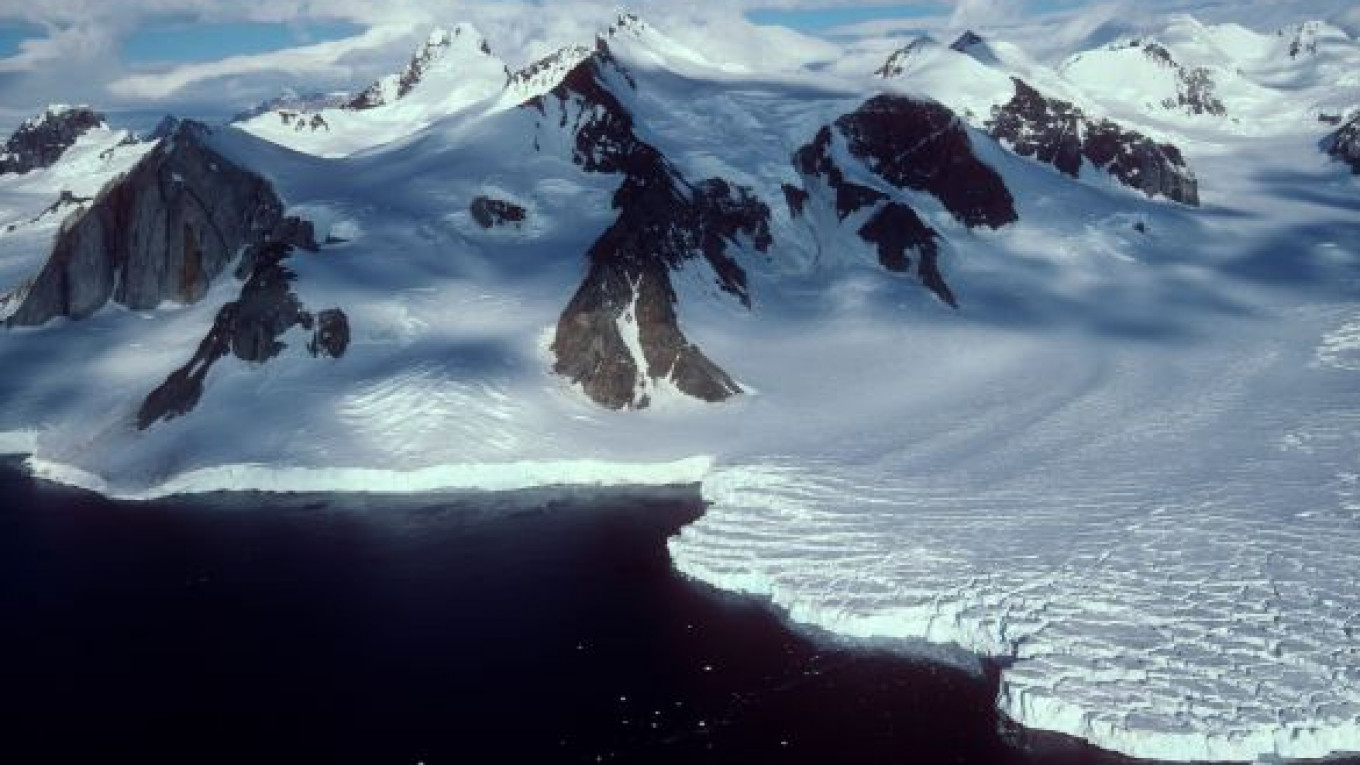For 15 million years, an icebound lake has remained sealed deep beneath Antarctica's frozen crust, possibly hiding prehistoric or unknown life. Now Russian scientists are on the brink of piercing through to its secrets.
"There's only a bit left to go," Alexei Turkeyev, chief of the Russian polar Vostok Station, told Reuters by satellite phone. His team has drilled for weeks in a race to reach the lake, 3,750 meters beneath the polar ice cap, before the end of the brief Antarctic summer.
It was here that the coldest temperature ever found on Earth — minus 89.2 degrees Celsius — was recorded.
With the rapid onset of winter, scientists will be forced to leave on the last flight out for this season, on Sunday.
"It's minus 40 [degrees Celsius] outside," Turkeyev said. "But whatever, we're working. We're feeling good. There's only 5 meters left until we get to the lake so it'll all be very soon."
The work will be resumed next Antarctic summer, when the researchers are set to finally reach the mysterious lake.
Scientists suspect the lake's depths will reveal new life forms, show how the planet was before the ice age and how life evolved. It could offer a glimpse at what conditions for life exist in the similar extremes of Mars and Jupiter's moon Europa.
"It's like exploring an alien planet where no one has been before. We don't know what we'll find," said Valery Lukin of Russia's Arctic and Antarctic Research Institute in St. Petersburg, which oversees the expedition.
EXPLORATORY RUSH
A centenary since the first expeditions to the South Pole, the discovery of Antarctica's hidden network of subglacial lakes via satellite imagery in the late 1990s has sparked a new exploratory fervor among scientists the world over.
U.S. and British explorers are on the trail of Russia's scientists with missions to probe other buried lakes, some of the last unexplored reaches of the planet.
"It's an extreme environment but it is one that may be habitable. If it is, curiosity drives us to understand what's in it. How is it living? Is it flourishing?" said Martin Siegert, head of the University of Edinburgh's School of Geosciences, who is leading a British expedition to a smaller polar lake.
Experts say the ice sheet acts like a duvet, trapping in the Earth's geothermal heat and preventing the lakes from freezing.
Sediment from the lake could take scientists back millions of years to tropical prehistoric times, the AARI's Lukin said.
OASIS UNDER THE ICE
Lake Vostok, about the size of Lake Baikal in Siberia, is the largest, deepest and most isolated of Antarctica's 150 subglacial lakes. It is supersaturated with oxygen, resembling no other known environment on Earth.
"The Russians are leading the way with a torch," said John Priscu of Montana State University, a chief scientist with the U.S. program to explore another Antarctic lake. Beneath the endless white landscape, Priscu suspects creatures may lurk, far from the sunlight, around thermal vents in the depths of Lake Vostok.
"I think Lake Vostok is an oasis under the ice sheet for life. It would be really wild to thoroughly sample. … But until we learn how to get into the system cleanly that's an issue," he told Reuters.
The low-lying, snowdrift buildings and radio towers of Vostok Station sit above the eponymous lake. The borehole, pumped full of kerosene and Freon to keep it from freezing shut, hangs poised over the pristine lake.
The explorers now face the question: How do we go where no one has gone before without spoiling it or bringing back some foreign virus?
"I feel very excited, but once we do it there is no going back," Alexei Ekaikin, a scientist with the expedition, said from Vostok Station. "Once you touch it, it will be touched forever."
A Message from The Moscow Times:
Dear readers,
We are facing unprecedented challenges. Russia's Prosecutor General's Office has designated The Moscow Times as an "undesirable" organization, criminalizing our work and putting our staff at risk of prosecution. This follows our earlier unjust labeling as a "foreign agent."
These actions are direct attempts to silence independent journalism in Russia. The authorities claim our work "discredits the decisions of the Russian leadership." We see things differently: we strive to provide accurate, unbiased reporting on Russia.
We, the journalists of The Moscow Times, refuse to be silenced. But to continue our work, we need your help.
Your support, no matter how small, makes a world of difference. If you can, please support us monthly starting from just $2. It's quick to set up, and every contribution makes a significant impact.
By supporting The Moscow Times, you're defending open, independent journalism in the face of repression. Thank you for standing with us.
Remind me later.






